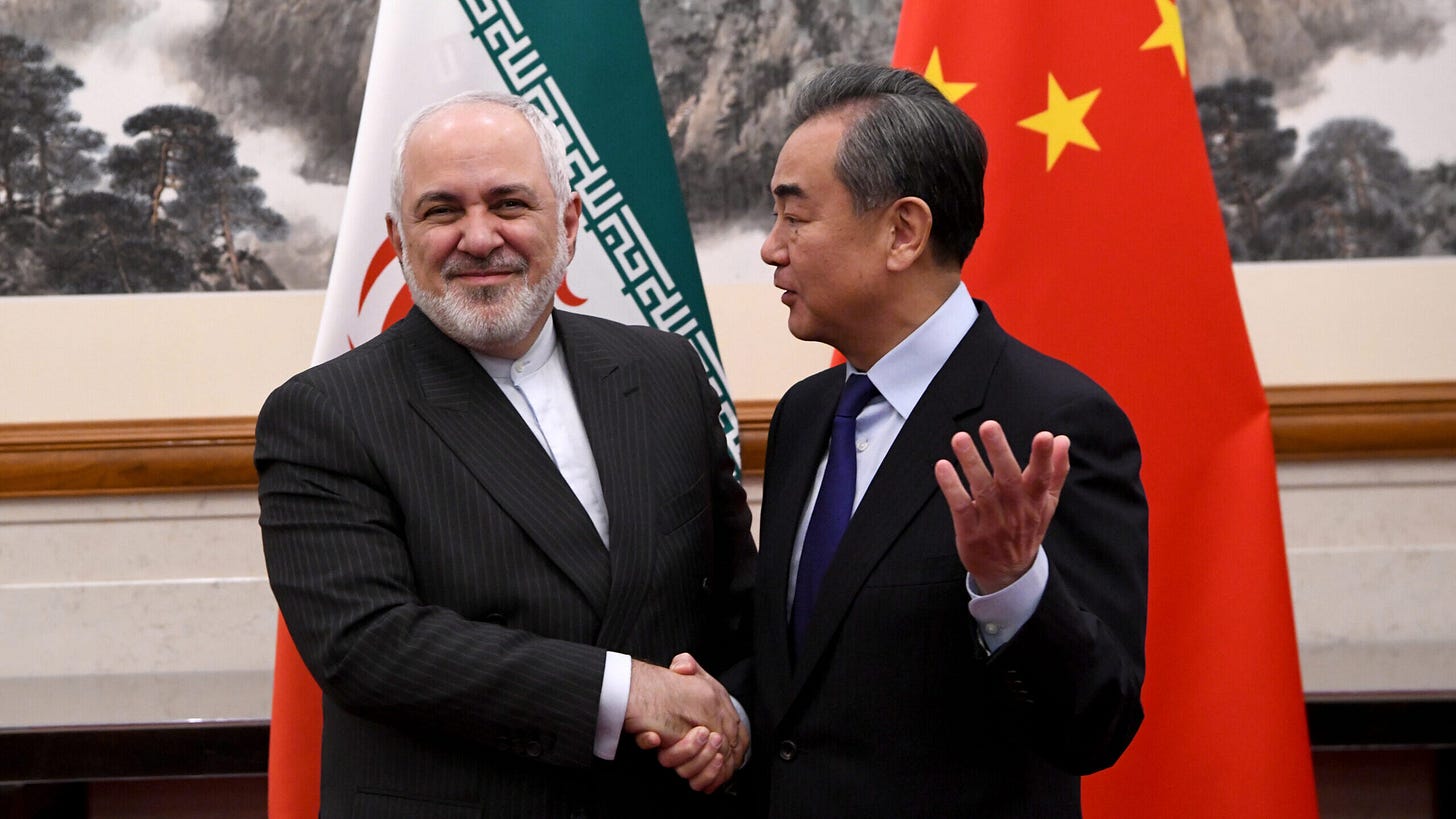The China in MENA Brief - China Defends Iran
China Signals Red Line on Israeli Strikes in Middle East

I. China Warns Against Israeli Strikes, Calls for De‑escalation
China’s Foreign Ministry expressed “deep concern” over Israel’s recent military strikes on Iranian territory, urging both sides to exercise restraint and avoid further escalation. Beijing emphasized that “any escalation of tensions and expansion of conflicts… is not in the interests of any party,” and warned that continued hostilities could destabilize the broader region. China reiterated its longstanding position on respecting state sovereignty and resolving disputes through dialogue. It also signaled a willingness to play a “constructive role” in promoting regional peace and stability, offering diplomatic mediation in the aftermath of the attacks
Strategic Takeaways:
Diplomatic Positioning: Beijing is carefully walking a diplomatic line—on one hand, aligning itself with Iran as a strategic partner; on the other, projecting itself as a neutral actor committed to international norms and multilateralism. China seeks to bolster its global image as a responsible great power, particularly in contrast to what it frames as U.S.-backed military aggression.
Energy Security: As a major importer of Iranian oil—much of it under sanctions-evasion mechanisms—China is economically exposed to any disruption in Gulf trade routes or Iranian production. De-escalation is not only a diplomatic preference but also a strategic necessity to protect China’s energy flows and shipping lanes, especially through chokepoints like the Strait of Hormuz and Bab al-Mandab.
II. Chinese Analysts Accuse U.S.–Israel Collaboration in Strikes
Chinese analysts argue that Israel’s airstrikes on Iran could not have occurred without prior coordination and approval from Washington. They point to the timing of U.S. military repositioning in the region—particularly the withdrawal of diplomats from Gulf embassies and the earlier deployment of B-2 stealth bombers to Diego Garcia—as signs of deliberate pre-strike planning. While U.S. Secretary of State Marco Rubio publicly denied involvement, Chinese state-linked media and policy circles dismiss those denials as implausible. They highlight the coincidence between the strikes and the IAEA’s June 12 resolution condemning Iran’s non-compliance with nuclear obligations, suggesting the IAEA rebuke was used to legitimize or provide diplomatic cover for the attacks
Strategic Takeaways:
Narrative Shaping: By portraying the strike as a joint U.S.–Israeli operation, China reinforces its narrative of American military hegemony and strategic manipulation in the Middle East. China's implication is clear: the U.S. is not an honest broker but a destabilizing actor that fuels conflict under the guise of international order.
U.S.–China Rivalry: Beijing is using the strikes to sharpen its ideological confrontation with Washington, particularly in multilateral forums such as the United Nations. Framing the U.S. as an aggressor and China as a peace-seeking power plays well with Global South countries, many of whom are skeptical of Western interventions. This narrative helps China court diplomatic allies and expand its soft power at the expense of American credibility.
© 2025 The China in MENA Project. All rights reserved.
Newsletter every Monday & Friday ( X: @chinainmena)
Managers: Zineb Riboua ( X: @zriboua) & Alexander Aibel
Contact: riboua@chinainmena.com

